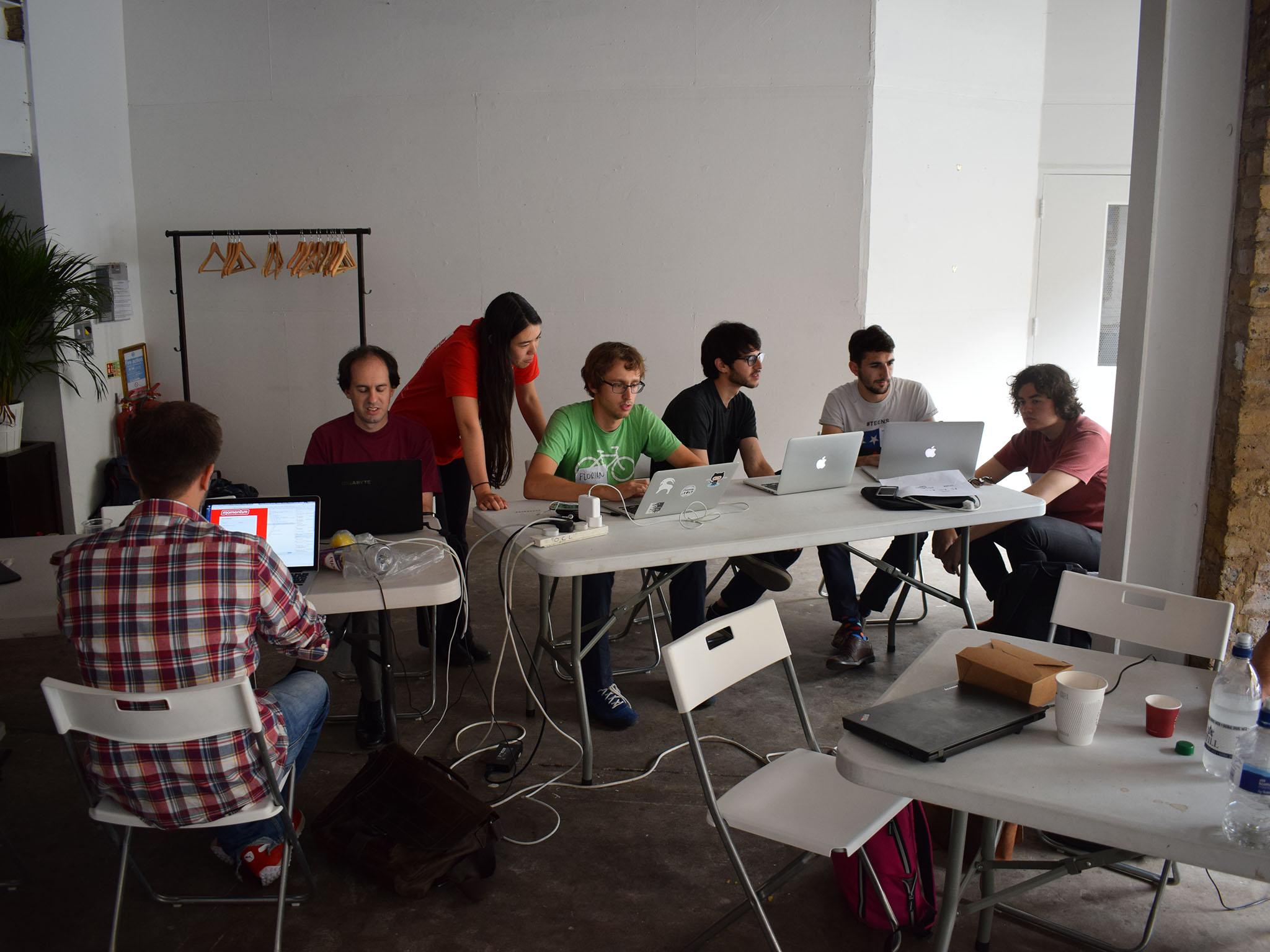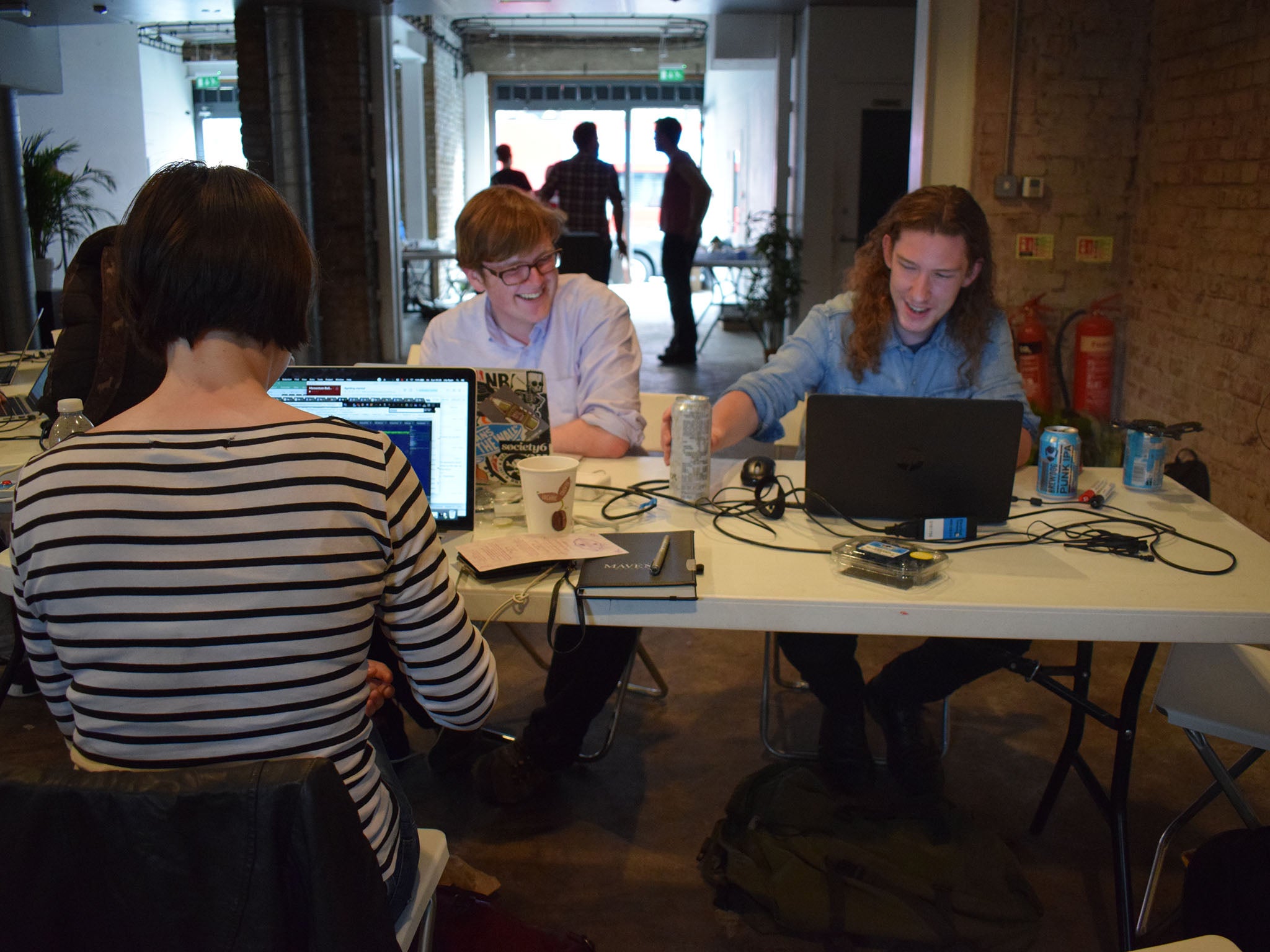How Momentum delivered Labour's stunning election result – and how the Tories are trying to copy it
Labour's grassroots movement Momentum was once dismissed by Tom Watson as ‘a rabble’, but after last month’s stunning election performance by Jeremy Corbyn they are being taken very seriously indeed – so much so that the Tories are now trying to steal their act

Your support helps us to tell the story
From reproductive rights to climate change to Big Tech, The Independent is on the ground when the story is developing. Whether it's investigating the financials of Elon Musk's pro-Trump PAC or producing our latest documentary, 'The A Word', which shines a light on the American women fighting for reproductive rights, we know how important it is to parse out the facts from the messaging.
At such a critical moment in US history, we need reporters on the ground. Your donation allows us to keep sending journalists to speak to both sides of the story.
The Independent is trusted by Americans across the entire political spectrum. And unlike many other quality news outlets, we choose not to lock Americans out of our reporting and analysis with paywalls. We believe quality journalism should be available to everyone, paid for by those who can afford it.
Your support makes all the difference.Among the deluge of leaks flooding out of the Tory party in the past weeks, one briefing to The Sunday Times on 2 July perhaps told us the most about the party’s prospects for the next election. In response to anger from Conservative MPs at being “massively outgunned” by Labour on the ground and on social media, the party is planning to quadruple their social media team, as well as create their own “Momentum-style social action groups” to galvanise their dwindling membership. Conservative Renewal would give “practical help and assistance to community projects”, yet also provide “the media team with a steady stream of engaging content and third party endorsement from ordinary punters”. Who the next Tory leader will be is still fiercely contested: how elections will be fought is becoming much clearer.
However, the Conservatives are a few steps behind. A third of the UK’s Facebook users were reached by pro-Labour Momentum-made content over the six week election period; thousands of Momentum’s members were contacted by others via phone canvassing app Calling for Corbyn to inform them of doorknocking sessions; tens of thousands of activists were directed into marginal seats (which Labour HQ had all but given up on) through the group’s website My Nearest Marginal. Despite being written off as a “rabble” in 2016 by the Labour’s deputy leader , Tom Watson; Momentum, the grassroots activist organisation set up to support Jeremy Corbyn and democratise the Labour Party, have received plaudits from across the political spectrum and is now commonly conceived as a pivotal player in Labour’s election turnaround. Tory plans to emulate their electioneering model might just be the most flattering praise they’ve received yet.
Momentum’s Digital Hub, a kind of collaborative hackathon held in a community space in east London over the weekend, is a sign that the organisation are looking to stay ahead of the curve. “This weekend’s for problem-solving and talking about all the things we wished we’d have had during the election,” says Erika Uyterhoeven, 30, a Momentum organiser and former Bernie Sanders activist. “But it’s also about kicking off a network of people who can volunteer to devote a couple of hours of their week to solving some of these problems.”

In the event space, there’s a relaxed air to proceedings: pockets of people are dotted around, some zoned into their computers, others taking a break and chatting cheerily to one another, with a few sipping on cans of beer. For many present, the Digital Hub is an extension of their working week – most of them work as analysts, developers or designers for their day jobs – yet the buoyant atmosphere illustrates they’re happy to give up their weekend for a cause they believe in. “I’ve got a fair degree of social anxiety so I’m not very good at doorstepping and stuff like that,” says Adam Englebright, 24, an analytics consultant from Brighton. “This event came around and I thought maybe I could use my actual skills. I quite enjoy my day job but the moment yesterday when I realised they had actually had things for me to do that I had expertise in was magic.”
Although some of the participants are understandably guarded about their projects, others are willing to explain what they’re labouring over. Dan Fahey, 28, a data analyst for a blue chip construction company in London, is working on a way to allow Momentum to target Facebook adverts more precisely. Both Labour and the Tories spent in excess of £1m on interrupting people’s news feeds with targeted political messaging over the course of the election. However Fahey is unsure of the accuracy of these adverts, and is looking to create a process by which Momentum can direct ads by constituency, local authority, or even ward.
“They cost money so it’s important we’re efficient with them – we don’t want ads to go to the same people twice,” says Fahey. “Unfortunately, you can’t just select a constituency on Facebook. But using simple geometry and a lot of processing power, hopefully we can find a way to allow Momentum to focus Facebook advertising on even more exact areas.”
Lily, 27, a principal consultant for a digital consultancy firm, is setting up the architecture of a system to allow Momentum to use Google to analyse what people have searched for in order to inform the organisation’s social media content. “Google advertising tools will let you see who’s searched for certain things and how that search has changed day to day,” she says. “So you can see things like how much interest there is in Jeremy Corbyn over time – people were more interested in him in 2015 than they were in the election – and you can build up big lists of related words to get a sense of an area and find what people were concerned about. Hopefully we can use this for general research but also more timely stuff, what is it that people are searching for right now, and can we create content to get in front of those people. That’s the more immediate sense of it.”
As the Tories cotton on to the new election campaigning paradigm, the worry for Momentum and the Labour Party must be that with the resources the Conservatives have, they may soon be able to outdo them at their own game. Despite its massive reach and influence, Momentum has very few paid staff and mostly relies on the goodwill and enthusiasm of volunteers and activists such as Adam, Dan and Lily. One Momentum organiser, who prefers not to be named, thinks that this is in fact its strength.

“If you don’t have all this money to burn, you’re going to find the leanest, most effective things to work on,” she says. “Typically, the bigger a project is the slower it goes. If people have the agency to self-organise and they know what they’re doing and have the skills, then it’s far more effective than having a big organised project which involves governance: procurement, strategy meetings, a project initiation document etc. The fact that this network isn’t top down means there are no bottlenecks.”
Others are more concerned about the Tory backlash. In the aforementioned Sunday Times article, as well as plans for Conservative Renewal, a letter from Andrew Bridgen, the Tory MP for North West Leicestershire, was quoted, which urged the party chairman to recruit the chief executive of the Vote Leave campaign, Matthew Elliot. Alongside Leave.EU, Vote Leave are known to have used Cambridge Analytica, the data analytics firm funded by American billionaire Robert Mercer, and also used by Trump in the 2016 presidential election. “I’m unsure how much of it is smoke and mirrors to be honest,” says Dan Fahey. “But I’ve heard Cambridge Analytica were using some quite sophisticated analytics. When I heard about them I thought woah, I better come and volunteer.”
The enthusiasm and passion of volunteers was the basis of Momentum’s success during the election campaign and events like the Digital Hub are evidence that this energy isn’t dwindling. However, in the Tories, Momentum will always be up against a more well-resourced political machine.
“Momentum can’t afford my day rate so I better come and give it for free for the cause, right?” says Fahey. “All that Cambridge Analytica stuff, if this is the level of sophistication that we’re going to be up against then we’ll fight back and do it better.”
Join our commenting forum
Join thought-provoking conversations, follow other Independent readers and see their replies
Comments